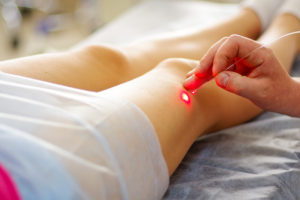
“This is the first study to document how depressive symptoms may complicate PAD recovery even among patients receiving specialty care,” said senior study author Kim G. Smolderen, Ph.D., FAHA.
Excruciating Pain
Peripheral artery disease (PAD) is a narrowing of the peripheral arteries serving the legs, arms, stomach, and head. It most commonly affects arteries in the legs. PAD can cause excruciating pain while walking and may impact mobility and quality of life. In some cases, it can be associated with a high risk of death and illness from cardiovascular diseases.
For the study, researchers followed 1,243 patients that were treated at vascular clinics in the U.S., the Netherlands, and Australia. All patients had an average age of 67 and were being treated for new or recurrent symptoms of PAD.
At the start of the study, researchers assessed patients’ depressive symptoms using the standard 8-item Patient Health Questionnaire (PHQ-8). Patients were required to answer questions about depression, sleep quality, energy levels, and other lifestyle health problems.
The health status of all patients was also measured at the beginning of the study and again at three, six, and 12 months with standardized patient interviews. The analysis found that men and women with depressive symptoms had worse health status at each time compared to patients who did not report symptoms.
More women than men showed depressive symptoms, and one in five of those women with symptoms of PAD experienced depressive symptoms one year after diagnosis. This is approximately two times higher than men. The women also experienced worse health status outcomes that could be partially explained by depressive symptoms.
“A major goal of PAD treatment is improving patients’ health status and quality of life,” said study first author Qurat-Ul-Ain Jelani, M.D. “Not recognizing or treating depressive symptoms may stand in the way of realizing optimal recovery.
“As more value-based care options are designed for patients with PAD, integrating mental health screening and treatment pathways into chronic disease management may increase the opportunity for patients to receive more holistic care, thus improving outcomes. A multidisciplinary approach that includes mental health supports for patients with PAD would be beneficial.”
As PAD is considered a significant global health problem, researchers hope this study can help physicians do more than just treat the legs and corresponding pain. With more awareness for the patients’ health as a whole, they should be able to provide extended patient-centric care.
Researchers do acknowledge that the emphasis from the study was on depressive symptoms, which may exclude many mental health concerns, such as anxiety or stress, and also excludes unmeasured clinical factors that could contribute to depressive symptoms. More research is needed to further clarify these findings.